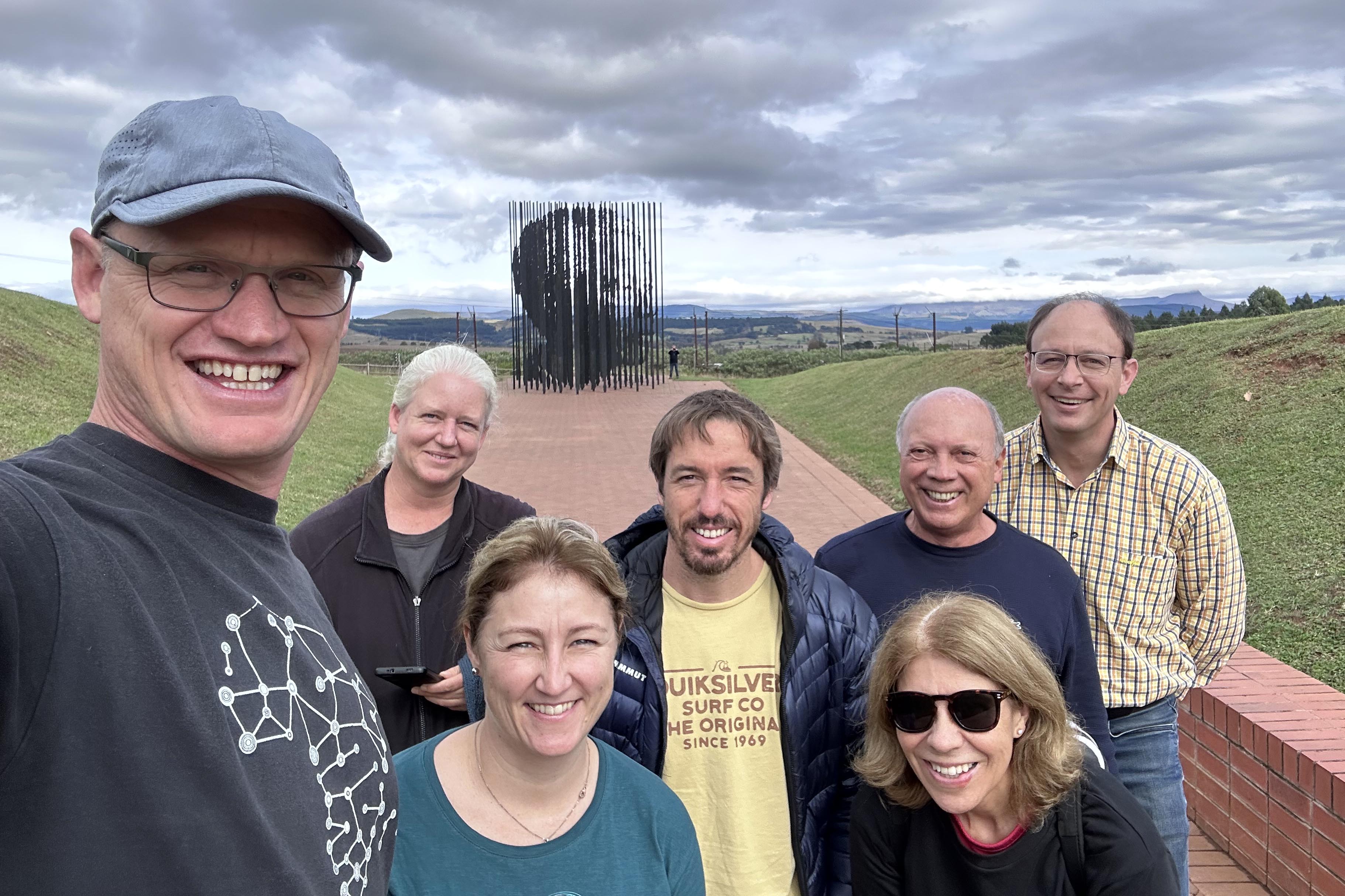Post TPCP field trip connects academic research and training to industry needs 2023-06-01
On 9-10 May the Tree Protection Co-operative Programme (TPCP) celebrated is 34th annual meeting. As is tradition, leaders in the group joined international visitors on a post-TPCP field trip to visit forestry and research partners, and reflect on the outcomes of the meeting and their relevance to the situation faced in the plantations and nurseries of industry partners. This year the group reflected in particular on the developing national Forest Protection Strategy.
The FABI staff who joined the meeting included Proff Bernard Slippers, Irene Barnes, Almuth Hammerbacher and Brett Hurley. The group was joined by Prof. Manuela Branco, Prof. Jonas Oliva, and Dr Carlos Rodas.
This year’s trip focused on the KwaZulu-Natal Midlands, and included a visit to Mondi’s Mountain Home nursery and Trahar Technology Centre, the Sappi Shaw Research Centre and the wattle extract company, NTE. At Mondi, an overview of the company and their strategic developments in R&D were provided, followed by a tour of the facilities and discussions on management of pests and diseases in forest nurseries. The Sappi visit included a comprehensive overview of forest research from the Sappi team members, leading to discussions on various topics related to pest and pathogen management. The NTE visit included a fascinating overview of the company and the processes for extraction from wattle bark.
The group was also fortunate to visit pest and disease sites in the Karkloof area, where symptoms of Elsinoe masingae, Teratosphaeria destructans and the cossid moth were evident. The other field visit was with members from NTE, NCT and the Institute for Commercial Forestry Research (ICFR) to the site of a small-scale farmer growing Acacia mearnsii, who had experienced serious stem canker disease, and thus had to harvest the crop early. Samples were collected from the site for diagnosis and thus to inform the management of this disease.
The trip concluded with a hybrid meeting at the ICFR with members of the ICFR and forestry industry from around the country to discuss the implementation of the national monitoring strategy.
We thank Izette Greyling (Mondi), Prof. Jolanda Roux (Sappi), Eza Mapipa (NTE), Cliff Walton (NCT), and Dr Ilaria Germishuizen (ICFR) for their assistance to organize the trip, as well as the many other forest and research staff that participated and contributed to the visit. This was a very valuable time of engaging with our industry partners to inform future objectives to ensure South Africa’s forest plantations remain sustainable and productive.








